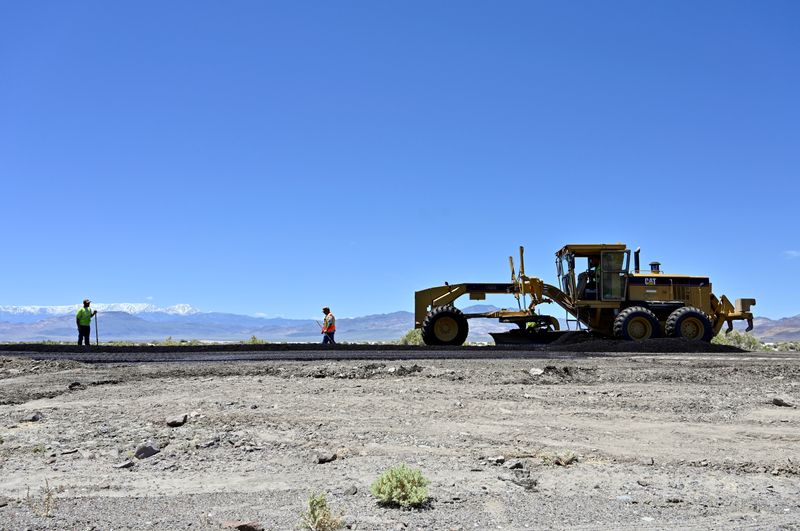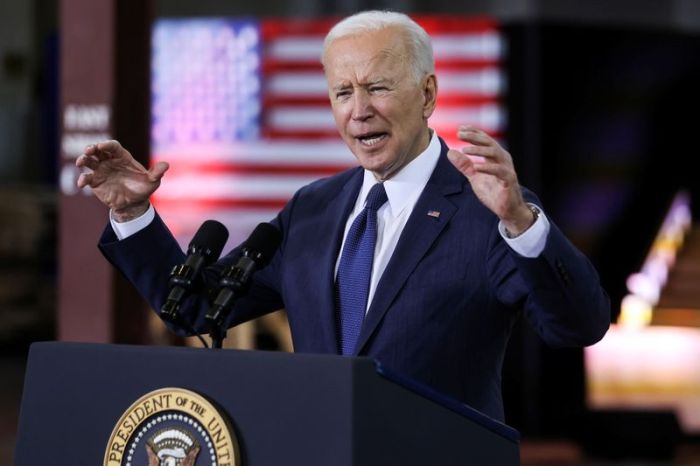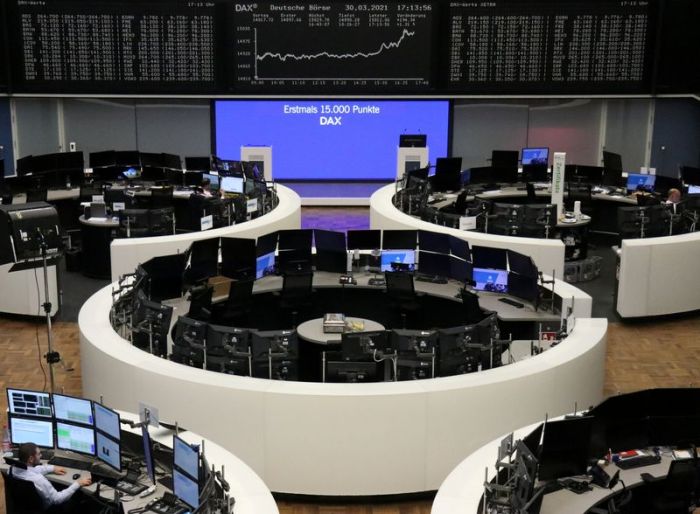WASHINGTON (Reuters) -U.S. President Joe Biden’s plan to pay for his $2 trillion infrastructure plan with higher corporate taxes faces hurdles in Congress from Republicans who say it will kill jobs and from some of his fellow Democrats who want a bigger write-off for state and local taxes.
The plan, which Biden will unveil at an event in Pittsburgh later on Wednesday, would hike the U.S. corporate tax rate to 28%, from its current 21%, to secure more revenue from corporations that have used offshore tax shelters and other measures to reduce their tax burdens.
It would make it harder for U.S. corporations to relocate their headquarters to lower-tax countries for tax purposes or to shift profits overseas. The proposal would also eliminate tax preferences for fossil fuels and beef up enforcement by the Internal Revenue Service.
It does not include Biden’s campaign promise to raise taxes on wealthy individuals, which could come in a second package.
Senate Minority Leader Mitch McConnell said he was “not likely” to support the package if it included those tax hikes.
“If it’s a Trojan horse for a massive tax increase, put me down as highly skeptical, if that’s all in one package and it’s a take-it-or-leave-it package,” McConnell told reporters in Erlanger, Kentucky.
McConnell said he spoke to Biden about the plan on Tuesday.
In the House of Representatives, Republicans on the tax-writing Ways and Means Committee said the proposed tax hikes would hurt U.S. job creation.
Leading business groups including the U.S. Chamber of Commerce and the National Association of Manufacturers warned that higher corporate taxes would risk job and economic growth and make it harder for American companies to compete globally.
The tax provisions would roll back many of former President Donald Trump’s 2017 tax cuts.
Biden’s overall infrastructure plan charts a dramatic shift in the direction of the U.S. economy, with investments in traditional projects like roads and bridges along with climate change and human services like elder care.
The president will need solid backing from Democrats in both houses of Congress if Republicans uniformly oppose the legislation as they did his $1.9 trillion COVID-19 relief package.
The White House said the tax hikes might move through Congress “alongside” the spending provisions, hinting that the two could pass separately. A House Democratic aide said the legislative plan remains up in the air, with the White House leaving the strategy to congressional leaders.
Some moderate Democrats are threatening to oppose the initiative in hopes of reversing Trump’s cap on the federal income tax deduction for state and local taxes, or SALT, which is felt most acutely in Northeastern states with higher taxes.
“We say, no SALT, no deal,” three House Democrats from New York and New Jersey said this week.
But the Biden tax package appeared to have ready support from Democrats in the Senate who plan to release their own proposal next week.
“While the proposals are distinct, our plans share the same goals of ending incentives to ship jobs overseas and rewarding companies that invest in the United States and its workers,” said Democratic Senator Ron Wyden, who chairs the tax-writing Finance Committee.
Democrats control the House by a margin of 219 to 211, so they will need to stay united if no Republicans support the plan. The party has not yet decided how to proceed, a House Democratic aide said.
Democratic House Speaker Nancy Pelosi said this week she aims to pass it by July 4.
(Reporting by David Morgan and David ShepardsonEditing by Andy Sullivan, Paul Simao and Sonya Hepinstall)

























